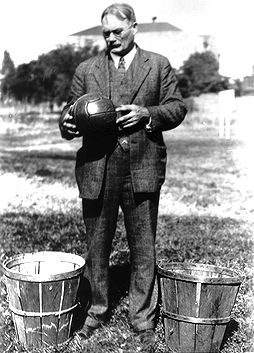Water Polo
Water polo is a sport played in water, generally a swimming pool, by 2 teams of 13 players each (7 per team in the field of play at one time), with the object of propelling a ball through the opposing goal. The name derives from the original game started in England about 1870, where players rode floating barrels, or "horses," and struck at the ball with a stick. This aspect was soon abandoned and the game became popular in Great Britain, with teams from the north of England dominating. England won the water-polo event at several early Olympic Games (1900-20); since the 1930s, Hungary, the former Soviet Union, the US and the former Yugoslavia have dominated international competition. Canada gained prominence in men's water polo at the 1976 Olympic Games with many excellent matches against the world leaders, including a 6-6 draw with defending world and olympic champions, the Soviet Union. Canada has established itself as the third power in the Western Hemisphere behind the US and Cuba. In the 1987 Pan-Am Games, Canada's men's team narrowly missed a bronze medal. Women's water polo gained "official status" at the international level in 1986 with its inclusion in the World Aquatic Championships in Madrid. Canada has an excellent reputation in international women's water polo. In 1981 Canada was the top women's water polo nation in the world. Water polo continues to be a popular sport in Canada, enjoyed by over 10 000 participants as of the year 2000. The Canadian Water Polo Association was formed in 1964; Water Polo Canada is now the national governing body.

 Share on Facebook
Share on Facebook Share on X
Share on X Share by Email
Share by Email Share on Google Classroom
Share on Google Classroom


